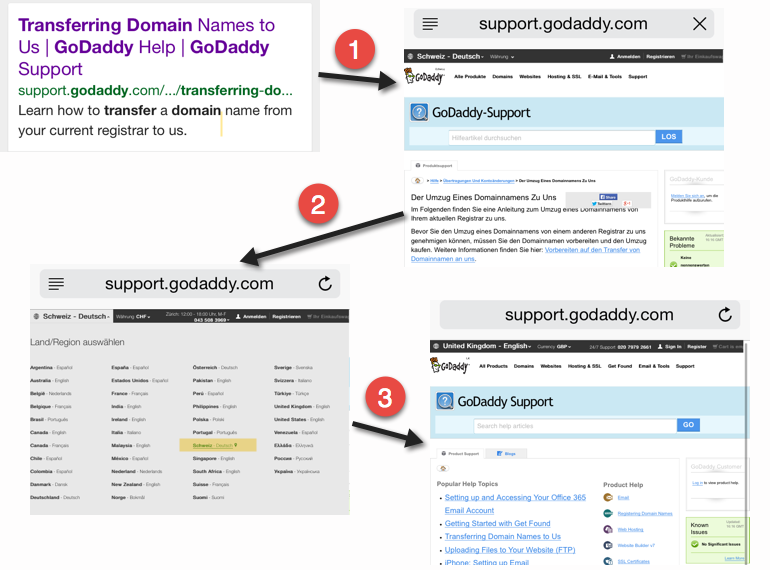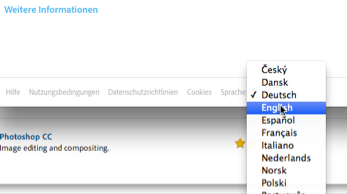Internationalization on the Web - an often inconsistent and frustrating experience
Sunday, April 27, 2014My situation is not uncommon - I speak only English fluently, but I live and work in Switzerland - in the German speaking part. Even if I didn't live here I would go on holiday to Europe and access the Internet from countries where English is not the native language.
Over the past few years many websites have made a big effort to internationalize. Now more content than ever is available in a variety of languages and many of the big companies (Microsoft, Adobe, Google, etc.) provide local language sites by default.
But many of these websites don't get internationalization right. Infact, with the aid of some examples below, I want to show just how frustrating these Internet services can be if you're an English speaker in a foreign country.
Firstly, it seems to be that most websites base the language they serve on my IP address. In all examples below I have this HTTP header set:
- accept-language:en-US,en;q=0.8
But it is almost always ignored. For instance I type www.microsoft.com into a web browser and get auto directed (surely based upon my geolocation) to http://www.microsoft.com/de-ch/default.aspx. If I scroll right to the bottom of the page I see:

If I click this link I get a dazzling list of Microsoft locations to choose from and I can select a different language.
Fitbit - it's a service I am registered with and use regularly. While in Austria (German speaking) I loaded the FitBit iPhone app only to find I'd been signed out due to Heartbleed. I didn't recall my password so I clicked the Forgotten Password linked and waited for the email to click the reset link. The email arrived in English. But when I clicked the link... German:


This is a trivial example and I can enter the password in the German language screen - although any error messages or password hints would be tricky to interpret. If I change the language of course the default homepage loads in English, so I lose the enter new password page. I am forced to work with the German page.
I search on Google UK for how to transfer a domain name to GoDaddy:

So despite clicking a link in English, from a UK search engine GoDaddy helpfully decided that because I'm accessing with a Swiss IP address it will show German content. I click the link in the upper left, choose the English version and the Support Homepage loads - the content I was interested in has disappeared and I need to find it again. The amount of time I lose to nonsense like this is staggering.
Note: many of these sites set a cookie once the language is changed, so if I'd gone back to Google and clicked the link again it would load the English version until the Cookie disappeared or until I used a different browser. Unfortunately when I access from home, work, phone and tablet this can be a lot of different browsers.
Adobe's internationalization is buggy - infact I abandoned my purchase of Lightroom because I became so frustrated at their inability to switch to English. At the bottom of the page they have this:

But despite selecting English this page is redisplayed:

Clearly it's a bug - but a surprising number of websites have similar issues.
Apple's website is standard across territories I believe, but the Swiss version only gives a choice of German and French - so no option for the Italian speaking citizens. Would it really be so difficult for a company like Apple to offer the ability to show their website in English in all territories ?

Google Maps used to be terrible for internationalization. Despite being logged into my English Google account it used to frequently display the content in Romansch (Switzerland's 4th and least spoken language). I found it a matter of trial and error to get it to switch to English. Now they sensibly default to English but offer me the opportunity to choose a local language:

In summary it's admirable that websites are providing their content in local languages, but it's a mess for people like me who have an English locale set on their OS but find it completely ignored. As mobile Internet becomes cheaper and people travel more, we will use the Internet more often abroad - so these issues won't be the sole problem of those who have residency in a foreign country.
I don't know what the solution is - but at least if I receive an email in English from a company or click an English link from an English search engine I'd expect the resultant page to be in English too.
See discussion on reddit